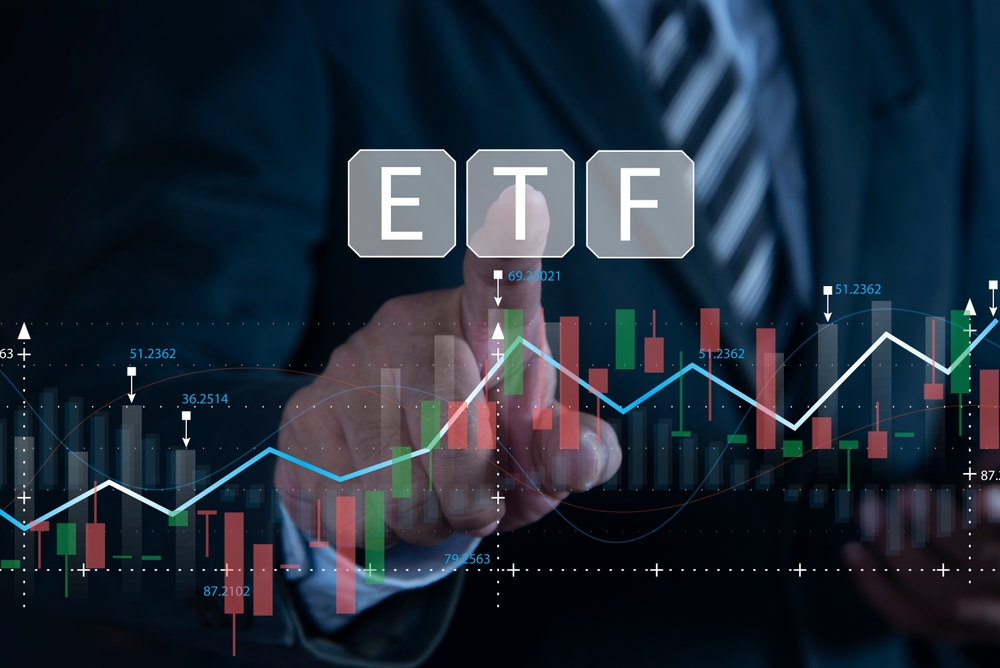BNY Mellon joined JPMorgan and Goldman Sachs to disclose holdings in spot Bitcoin ETFs. The Wall Street titan confirmed $13.28 million worth of Bitcoin ETFs in its recent filing with the Securities and Exchange Commission (SEC).
Key Takeaways
- BNY Mellon SEC filing shows $13.28 million exposure in Bitcoin ETF holdings, allocating $1.4M in BlackRock and $11.87M in WisdomTree
- According to a recent SEC filing, Goldman Sachs leads other Wall Street investment banks with over $2 billion in Bitcoin and Ethereum exchange-traded funds (ETFs).
- The accelerated uptake of spot Bitcoin ETFs emerged following the approval of spot Bitcoin ETFs early last year, allowing institutional investment to pursue the regulated indirect exposure to crypto.
- Federal Reserve Chair Jerome Powell urged banks offering crypto services to deploy proper risk management.
- The regulatory shift under the Donald Trump administration is set to ease crypto exposure and portray digital assets as investable products.
BNY Mellon Gobbles ETFs
The Bank of New York Mellon (BNY Mellon) illustrated in its SEC filing that it invested $13.28 million in Bitcoin ETFs. The Wall Street bank outlines its portfolio as comprising 115,108 shares within the Wisdom Tree Bitcoin Fund (BTCW), which translates to $11.87 in value. This adds to the 25,309 shares in BlackRock’s iShares Bitcoin Trust (IBIT) approximated at $1.4 million.
The disclosure of Bitcoin ETFs aligns with the larger trend, where the oldest US banks are pursuing opportunities in the decentralized finance space via regulated investment vehicles. This disclosure conforms to the prediction that approval of spot Bitcoin ETFs in January last year would usher in a new era for traditional financial (TradFi) institutions. As such, Bitcoin and Ethereum ETFs have become the new pathway allowing Wall Street investors to gain exposure to digital assets.
Regulated Bridge in ETFs
BNY Mellon echoes the investment path adopted by other Wall Street players, including Goldman Sachs, which now has the largest position, surpassing $1.6 billion in Bitcoin ETF shares and nearly $0.5 billion in Ethereum ETF shares. Additionally, JPMorgan Chase confirmed modest entry into the space by investing approximately $1 million in spot Bitcoin ETF shares.
The disclosure by BNY Mellon portrays spot Bitcoin ETFs as the regulated bridge linking TradFi and digital assets. The investment products allow retail and institutional investors to establish exposure to Bitcoin price action without experiencing the technical complexities associated with direct ownership and storage of cryptos.
Regulatory Landscape
Despite the uptake of crypto-based investment products among Wall Street players, regulatory restrictions still limit the direct involvement of US banks with digital assets. Goldman Sachs chief David Solomon highlighted this limitation in December 2024, decrying that the regulations prohibit banks from holding crypto as principal assets.
The Wall Street outcry captures the attention of regulators, with the SEC under Mark Uyeda as acting chair rescinding the controversial SAB 121. The bulletin rule mandated banks that offer custody services for digital assets to capture them as liabilities on their balance sheet.
The Federal Reserve chair Jerome Powell informed Congress during his Feb 12 address that the central bank would not deny banks from crypto-related services. Nevertheless, he clarified that such banks should prioritize deploying appropriate risk management practices.
BNY Mellon disclosure affirms that many Fed-regulated banks already have crypto engagements under existing guidelines. While Powell reiterated the need to manage exposure levels, the discussion appears open on whether the banks will eventually hold Bitcoin in their respective treasuries.
Shifting Crypto Policy
The US crypto space has witnessed monumental changes in regulatory approach since the exit of Gary Gensler, which many viewed as running an anti-crypto policy. The changes are attributed to President Donald Trump’s friendly stance toward digital assets and quick rollout of executive orders to fulfill his campaign promises.
Now dominated by pro-crypto lawmakers, Congress is warming up to clarity on crypto regulations. This bipartisan undertaking emerged as the SEC paused enforcement actions against major crypto firms.
The Treasury Department is portraying openness in discussing oversight on the dollar-backed stablecoin. The efforts seek to reverse the exodus of crypto projects and talent to other jurisdictions that have welcoming regulatory frameworks.
The choice for ETF investments by Wall Street banks, including BNY Mellon, suggests a calculated approach to establish crypto exposure. The ETFs offer the TradFi institutions a platform to participate in the crypto space within the present regulatory boundaries. Lastly, the ETF investments offer a familiar structure for BNY Mellon, though they exercise a modest commitment level, unlike Goldman Sachs.
